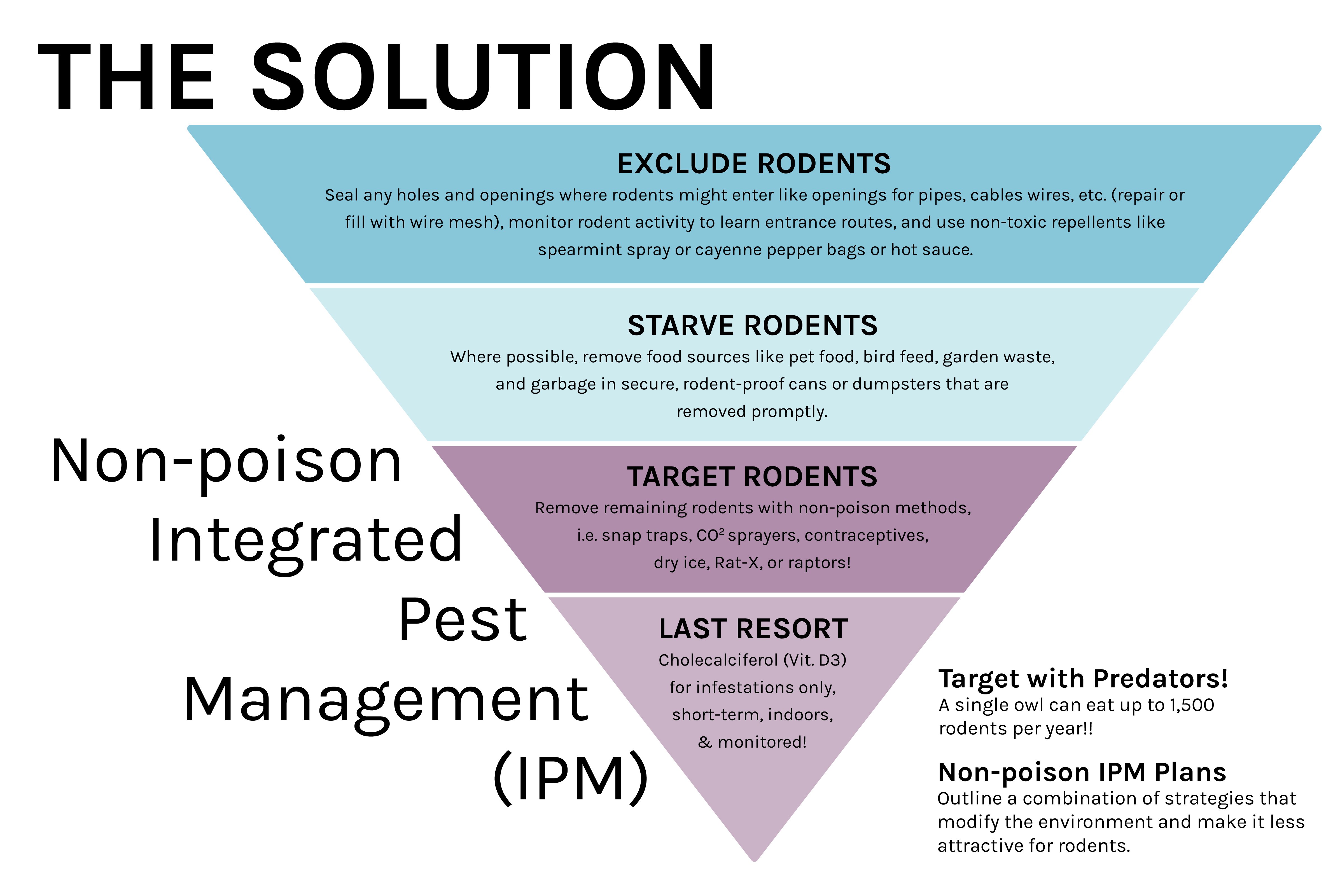Advocate
Poison-Free Pest Control
Rats and mice have coexisted with humans for thousands of years. Despite aggressive efforts to exterminate them across the world, only isolated human settlements such as some islands and the province of Alberta, Canada, have managed to eliminate human-dependent rodents entirely. For most communities, rats and mice are here to stay.
Encountering rodents in your home, business, or other indoor spaces can be stressful and uncomfortable. But wildlife-killing rodenticides aren’t a long-term solution to rodent problems.
To thrive indoors, all rodents need an access route and a source of food. As long as these factors remain, more rodents will keep returning to indoor spaces, regardless of how many are poisoned. And since individual rodents typically have a range of one city block, poisoning rodents in one building won’t keep others from coming back.
How to Control Rodents Without Rodenticides
The only way to permanently keep rodents out of an indoor space is through a process called integrated pest management—a combined approach of removing food sources, closing access routes, and killing or removing any remaining rodents.
Exclude Rodents
Rodents fit through holes as small as a quarter. To keep them out of your space:
- Seal any holes in roofs, basements, crawlspaces, and walls
- Use wire mesh extending partially into the ground to block off spaces under porches
- Seal opening around cables, pipes, and wires where they enter your space
Remove Food Sources
Rodents will eat almost anything. To starve them out of your space:
- Never leave pet food out for prolonged periods
- If you feed birds, only use small amounts of seed at a time, bring in feeders at night, and pick up fallen seed
- Harvest all food in gardens quickly
- Keep garbage cans securely covered
Target Remaining Rodents
Without food or access, rodents won’t last long. If you must get rid of remaining rodents quickly, consider non-poison methods:
- Snap-traps: be sure to only use snap traps where they cannot be accessed by children, pets, or other wild animals.
- Rodent contraceptives: Products that reduce rodents’ fertility, reducing their populations gradually over time.
- CO₂ Traps: These traps immediately and painlessly kill rodents by suffocating them with sudden bursts of CO₂ once they enter traps
Never use glue traps—they trap rodents without killing them, causing immense suffering, and often capture birds and other animals. For more information, check out these resources from Raptors are the Solution.
Trust Nature
A single family of barn owls can eat 1,000 to 3,000 rodents in a year. When we poison them, we destroy nature’s pest control. Predators can control more of our pest issues if we let them
How to Recognize SGARs in Your Community
Wildlife advocates can easily identify SGARs. Federal law requires pest control professionals to place SGARs within tamper-proof bait boxes, typically made of black plastic and roughly the size of a shoebox. Pest control professionals generally place bait boxes in places with high rat populations, like basements, attics, alleys, or under porches. All bait boxes must be labeled with the type of poison they contain.
The most common SGARs include:
- Brodifacoum (Brand names Mouser, Ratak, Talon)
- Bromadiolone (Brand names Maki Mini Blok, Contrac)
- Difenacoum (Di-Kill)
- Difethialone (First Strike, Hombre)
If you recognize a bait box that contains SGARs in your community, consider discussing the dangers of these poisons to wildlife with the property owner, and the steps they can take to control rodent populations with poison-free methods.
Help Protect Wildlife from Rat Poisons
Interested in doing more to protect wildlife from deadly rodenticides beyond your own property? Mass Audubon is launching local campaigns in communities across Massachusetts to regulate the use of second-generation anticoagulant rodenticides (SGARs), an especially deadly class of poisons. To succeed, we'll need volunteers from as many towns and cities as possible.
Stay Connected with Policy and Advocacy
Learn about opportunities to advocate for our transformative policy agenda




